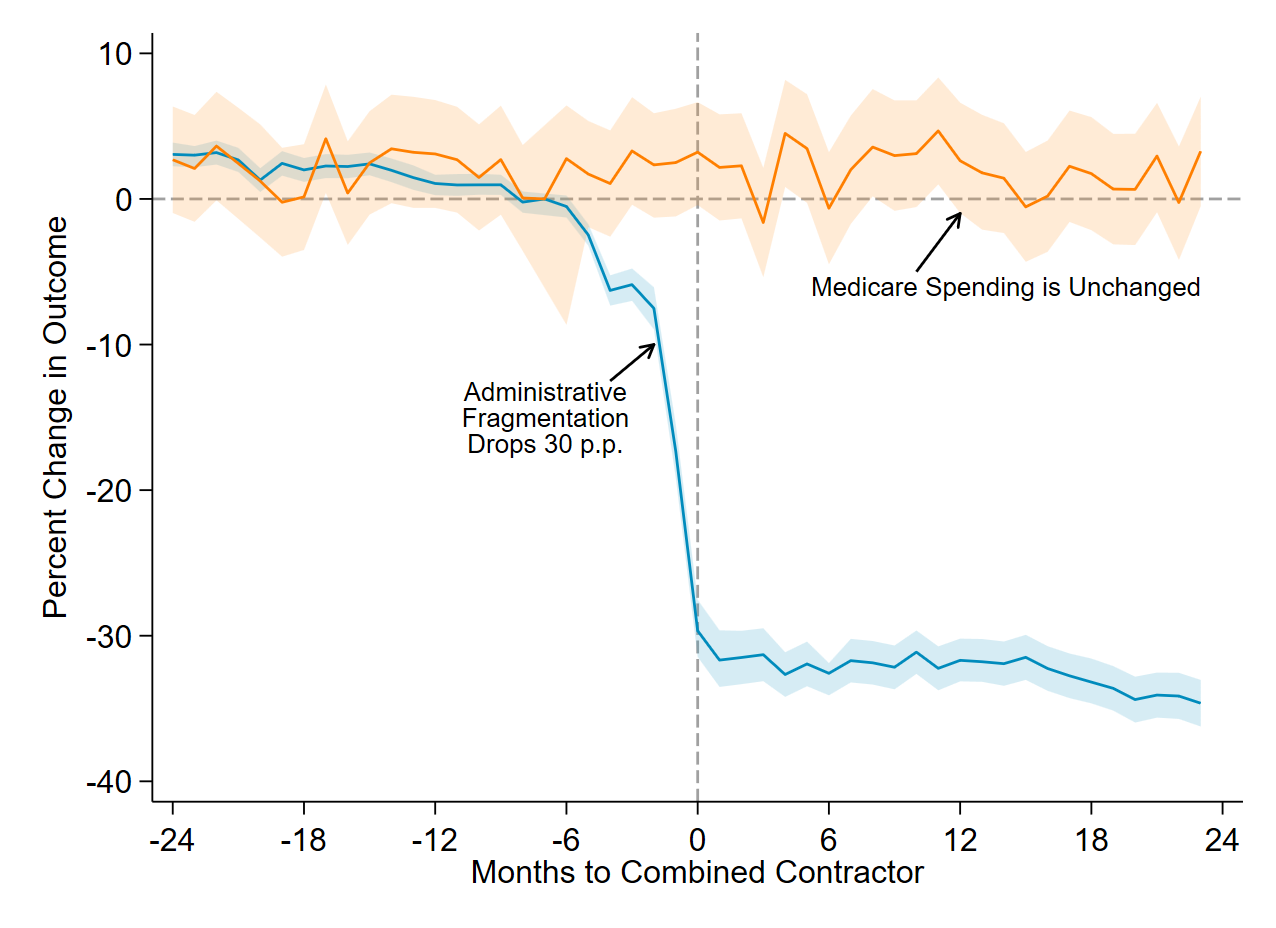Administrative Fragmentation in Health Care
with Maggie Shi
Work in Progress
BibTeX citation available here. Contact me for a recent draft.
Abstract: The fragmentation of the US health care system is often thought to contribute to its high levels of spending. This paper investigates the impact of reducing “administrative fragmentation’’ – the fragmentation of billing and administrative processes – on provider behavior, health care spending, and patient outcomes. We leverage the decentralized nature of the Medicare program, which is administered by a patchwork of contractor firms who process claims and make coverage determinations across different geographic regions and service types. We study a reform that consolidated the administrative processes for inpatient and outpatient care, and consider the effects on followup care for patients recently discharged from a hospital stay. Leveraging the staggered implementation of the reform and differential exposure across hospitals based on their pre-reform contractors, we find that the reform substantially reduced administrative fragmentation and slightly reduced claim denial rates, but had no impact on health care spending, utilization, or patient health outcomes. Specifically, the reform did not alter post-discharge care or spending, or rehospitalizations. Additionally, there is no evidence of changes in administrative costs or hospital administrative technology adoption. Our results suggest that administrative fragmentation may not be a primary driver of high costs in the US health care system.

